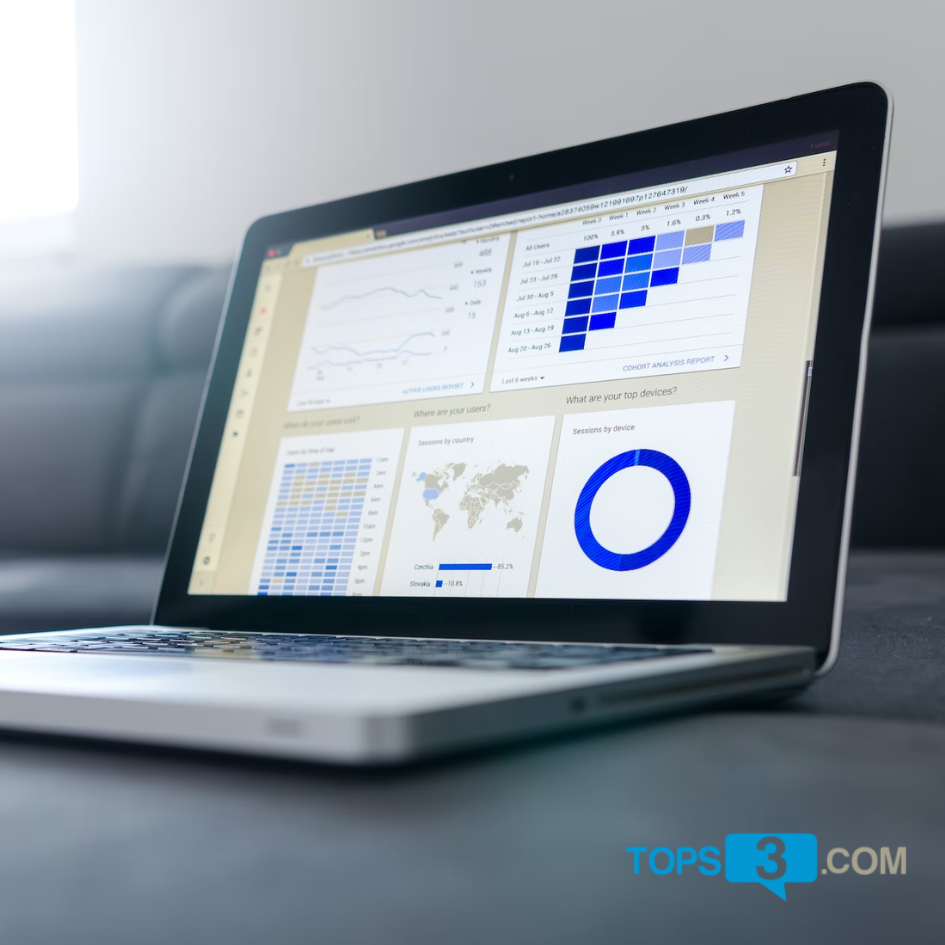CRM has become a fundamental asset for all companies that develop a commercial activity. In addition to contributing to a better internal organization and a better commercial follow-up, CRMs actively help to improve the customer experience.
What is CRM software?
CRM or Customer Relationship Manager software refers to a variety of software used to facilitate access to and management of relevant and accurate information about your leads, prospects, or customers.
CRMs record all contact details (name, email address, phone number), as well as other identifying information that a company chooses to track.
They can also consolidate a company’s contacts into one account, which is useful for the sales department.
How can a CRM help my business?
Beyond contact data, CRMs record interactions between sales reps and prospects, such as emails sent, phone calls made, messages, and appointments made.
Some of them even offer the ability to track the progress of transactions and leave notes on the reasons behind the failure or success of a deal.
Contact management can be very complex, so operations CRM software can be a valuable tool for companies that want to develop and adapt their processes.
However, it is an additional solution that should be implemented before training your employees in its use.
Advantages of implementing CRM in a company
A CRM centralizes the recording of your data
Speed and simplicity are essential in the sales industry. Your sales reps are wasting precious time if they have to search their inbox or call log (which is most likely in Excel) for a prospect’s phone number or the date of their last invoice or contact. This method is not reliable.
If your sales reps forget to take note of an interaction with a contact or go on vacation, it is possible that the same email is sent several times within your company and this generates frustration and friction among prospects or leads.
A CRM facilitates the work of decision-makers.
Another general benefit to a company is that CRMs standardize the way sales reps track their activities and dealings with prospects, which simplifies reporting.
Without a CRM, sales reps are likely to track activities in their way, making it difficult for team managers to collect data to get a consistent picture, making it impossible to establish tracking to see improvements for the sales team.
A CRM is a flexible tool that helps leverage growth.
We know what you’re thinking. “Can’t I do all this in Excel? Everyone knows how to run this data processor.”
If you have four or five customers, it’s easy to manually track all interactions. But think about it: do you always want to have four or five customers? Wouldn’t you want to leverage your company’s growth? Will your manager think the same when he or she dreams of scaling productivity and sales numbers?
You’ll also want to analyze the activities of your sales reps to discover which strategies or sets of touch points are delivering the best results (or even analyze other metrics of your sales team’s effectiveness).
CRM is what the customer wants. It’s not a catchphrase: it’s the desires of the users. When you have stopped to think about possible improvements to your company, you will also have realized that you need to think about what potential buyers want to find. To offer them the best! To attract more new buyers and make them loyal. And grow, and grow… That’s what this customer management solution is all about.
Why you should use a CRM
Why should I use a CRM? As we have seen above, a CRM is the closest thing to a Swiss army knife in marketing. So here are a few reasons why your company should use this system:
- To be able to centralize all customer and prospect information in a single database.
- Plan your agenda in a more efficient and organized way.
- Segment customers and prospects, which will help you when selling and analyzing data.
- Create personalized marketing campaigns
- Conduct customer service from within the CRM, saving time and resources.
- Increase your chances of retaining customers or increasing sales.
- Detailed tracking of each lead, which helps to capture customers.
- Analytical results per customer, and in the same tool.
How to choose the best CRM
Each company is different and the CRM must adapt to our needs, so we need it to be:
- Customizable: tools can be added as our requirements increase.
- Scalable: it should grow as our company grows.
- Accessible: we can access it from any computer.
Learn how a CRM helps your business grow
- Automates processes: Increases team productivity.
- Manage data: Manage your customer information in real-time.
- Personalize services: Focus your efforts on the specific needs of your customers.
- Increase sales: Generate and close more sales, increasing your company’s ROI.
- Increase productivity: Better results in less time.
- Provide a positive customer experience: Satisfied customers, and secure growth.
- Reduce costs: Prioritize and automate processes.
- Increase cash flow: Generate more qualified leads and increase sales opportunities.
- Optimize customer retention rate: Achieve resolution of the ailments that brought your customers.
- Scale flexibly and safely: Dynamize the achievement of objectives at the required pace.
What to do if the company is not ready to handle a CRM?

We repeat, from start-ups to small and medium-sized companies, everyone can take advantage of having a CRM (and we remind you that, at Hubspot, you can enjoy a free version).
1. Focus on your main buyer personas
To start building a sales-ready website, you should begin by focusing on the people you hope to attract. This involves drilling down to your buyer personas.
Of course, you may have several different personas in your company, so you must focus on your primary and most sales-generating personas.
2. Create your site map
Most of the time, when we are building a website, it is a redesign versus a net new design. So, the next step we usually take is to examine the existing site. Evaluate which pages are generating the most traffic, because that’s a sign that they’re adding value.
3. Develop a content strategy
Okay, so you’ve evaluated whether you need a redesign or your website is fine. Now you need to evaluate what kind of content you offer: a lot, a little, none, do you have a lot of content but on different topics, or have you never evaluated writing or offering valuable tutorials to your potential buyers?
What might a CRM do for you increment buy recurrence?
It sounds simple and logical, but if you increase the number of purchases per customer in a given time, your revenue will grow. The question here is: how often do you communicate with your customers? Once a week? Once a month?
It may seem obvious but the more time you go without communicating with your customers, the less likely they are to buy from you. As long as you can maintain a regular relationship with your customers, it will be your job to make them feel a need to buy your products again.
A CRM allows you to collect every detail of your customer’s behavior. Use them to maintain a fruitful relationship with them and offer them useful and relevant information so that they can increase their purchase frequency.









